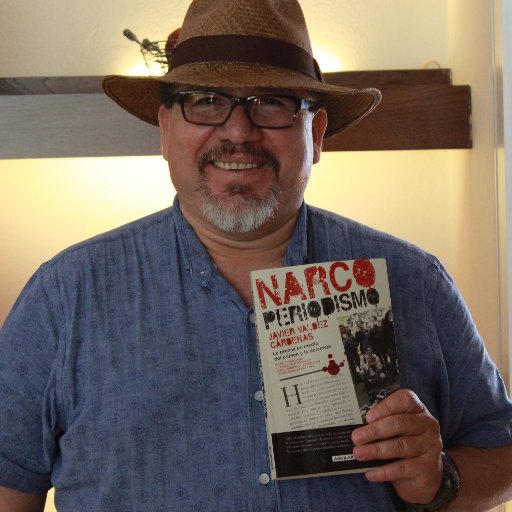Consolidating a business model that contributes to a sustainable journalistic project is a difficult task and hundreds of independent news outlets in Latin America know it. But when the journalistic project is attempted in a region plagued by insecurity or corruption, the obstacles multiply.
Some sources of income that may work for most small and medium-sized newsrooms, such as traditional advertising, government advertising or monetization of digital content, are not an option for news outlets in areas at risk of armed conflict or organized crime, due to factors such as the fear of potential clients that their brand will be associated with these issues.
In an attempt to try their luck with alternative modes of financing, the founders of the Mexican investigative journalism site Revista Espejo, located in Culiacán, capital of the state of Sinaloa, came up with the idea of approaching local business people in a different way.
Sinaloa is one of six Mexican states with travel restrictions by the U.S. government, which classifies it as a "Do not travel due to crime and kidnapping" state. The Sinaloa Cartel, which operates in much of Mexico and in several countries around the world, and which is internationally known thanks to its former leader Joaquín "El Chapo" Guzmán, owes its name to this state.
"We currently have some sponsors, businessmen who believe in Espejo's project, in the topics we cover, in the way we approach the defense of human rights, of minorities and who believe in the investigations we have done that question the exercise of government, corruption issues, all of that," Francisco Castro, digital editor of Revista Espejo, told LatAm Journalism Review (LJR).
The news outlet found that, more than clients, the Sinaloan business community can become an ally in strengthening its business model, so it implemented a strategy that benefits both them and their sponsors.
In 2022, Revista Espejo began to make agreements with companies and business organizations to cover events and generate content about them and their dissemination in the media. In addition to receiving payment, the news outlet takes advantage of the access to guests at the events to generate other content of interest to its audience, while gaining visibility among members of the business sector.
"It's like killing two birds with one stone: we generate a little income and apart from that we try to position ourselves as a news outlet during the event and in the eyes of the business people who attend," Castro said. “We make a well-structured coverage plan and that, let's say, is working for us.”
The most recent such coverage was in late November, at the 6th annual summit of the Mexican Association of Women Heads of Business (AMMJE, by its Spanish acronym) in Culiacán, about which Revista Espejo published content before, during and after the event. The challenge, said Castro, is to create articles that go beyond paid content. That is, articles that are useful for both the event organizers and the news outlet's audience.
"They are not merely advertising [articles], but we attend, take advantage [of the event] and publish what we consider to be of interest," he said. "And let's say that in the package we also cover some of the talks they give."
Proximity to the business sector has become key for Revista Espejo. For this reason, in October 2022 the media decided to strengthen its business section in order to turn it into a strong arm for attracting resources.

The strengthening of the business section of Revista Espejo includes the production of specialized content that is useful for Sinaloa's businessmen. (Photo: Espejo Magazine)
The strengthening includes the creation of more specialized content focused on the business sector than that published by other local media. For example, at the beginning of the year, Revista Espejo plans to publish a special on economic outlook for 2023 that can serve as a guide for the state's business community.
"Through those types of projects, we hope to be able to hook them [entrepreneurs] so that when we go talk to them, we can show them that content deck," Castro said. "And through that, well, somehow entice them and try to show them that we are doing different things."
In its efforts to achieve sustainability, Revista Espejo has tried to monetize content through its social media. However, they found that this is not one of the most viable options for news outlets that cover or are located in at-risk regions, especially if they are small newsrooms.
The news outlet is currently in the process of complying with Facebook's requirements to monetize content, mainly videos, which include having a minimum of 10 thousand followers, reaching 600 thousand minutes of videos played in 60 days and having at least five active videos.
In addition to the fact that trying to comply with the platform's requirements is a full-time job, Revista Espejo, whose team consists of 10 people, and only one of them is in charge of social media, found that some of its content has been penalized for dealing with topics considered to violate Facebook's rules. This has further hindered its attempts at monetization.
"There are very few of us, we multitask, so it makes it difficult for us, for example, to keep the portal fed. We are trying to generate enough content to have that constant mobility in social media and to be able to obviously meet its requirements," Castro said. "But meeting those requirements for a small news outlet with few people is really too complex.”
Another news outlet that has had good results with the creation of content for businesses is the portal Red Es Poder, an investigative journalism outlet based in the city of Torreón, Coahuila state, which in the past decade faced an acute security crisis.
In 2021, Red Es Poder was a grantee of SembraMex, the accelerator initiative of SembraMedia, the Border Center for Journalists and Bloggers and the International Center for Journalists (ICFJ). As a result, Red Es Poder set up a content studio through which they create editorial projects for business websites on topics related to their line of business.
This content studio and a membership program - also built as part of SembraMex - have become important sources of income for the news outlet, which initially had difficulty selling traditional advertising because of the topics it covers, such as corruption and politics.
"We have discovered in practice that it is very convenient for any business to have a blog within its company, a personal web page that builds journalistic content and editorial content in general with data and relevant information for them," Gerardo Pineda, co-founder of Red Es Poder, told LJR.
While the content produced is branded content style, with the aim of advertising the product or service of each company, the Red Es Poder team presents it as a journalistic investigation, with the editorial rigor that this implies. In addition, the news outlet is in charge of positioning the companies' websites in Google search engines through SEO.

Red Es Poder has chosen to produce investigations on corruption cases in Coahuila and avoid covering issues related to organized crime. (Photo: Red Es Poder)
According to Pineda, the fact that companies publish journalistic content on topics related to their industry gives them a certain prestige and makes them look relevant. For companies, on the other hand, this has a similar effect to B2B (business to business) marketing, with which they get traffic to their sites that can lead them to acquire potential customers and generate sales.
"B2B works well on LinkedIn and apart from that the client also works it on WhatsApp, and at the same time gives them an excuse to approach other entrepreneurs, as a kind of sales pitch," Pineda said. "Our clients start to see after a few months that it benefits them to have a editorial project [...]. For me, it is a bigger area of opportunity than social media, because you reach many more people."
With the content studio, Red Es Poder has been able to compensate for the fact that it has been difficult for them to sell traditional advertising due to the number of visits to their portal. Pineda said that his news outlet registers between 15,000 and 20,000 unique visits per month, while the traditional news outlets in Torreón reach between 400,000 and 500,000, figures with which it is difficult to compete for advertisers.
However, Red Es Poder has managed to make alliances with small and medium-sized companies in Torreón, such as restaurants, stores and bookstores, so they can offer discounts and promotions to members of its subscriber program.
For small independent media in areas with high levels of insecurity there is the dilemma of keeping society informed about crime and everything related to it, or avoiding covering the topic to safeguard the physical integrity of their teams.
Red Es Poder and Revista Espejo, based in states with a significant presence of drug trafficking cartels, have chosen to avoid coverage of criminal events as much as possible. While the former completely rules out covering criminal violence, the latter only covers it when it involves events with wide repercussions, and they try to do so with great caution.
"Every now and then we do address issues that have to do directly with security and all this, or issues of very high impact," Castro said. "First at our editorial meetings we discuss very well the risk that the contents that are there on the table may imply for publication. If we see that the physical integrity of the reporter is at risk, then we do not publish it."
Although the team of Revista Espejo has not received threats or acts of intimidation directly, Sinaloa is a state with a history of violence against journalists. It was in that state where in May 2017 Javier Valdez, founder of the weekly Ríodoce, was murdered. His death has been among the most shocking among the journalism community in Mexico. And this year, also in May, journalist Luis Enrique Ramírez was found dead and with signs of beatings, after being reported missing a day earlier.
As a small newsroom, Revista Espejo can only take precautionary measures to take care of its staff and protect its digital security in a climate of insecurity. However, Castro admits that to shield their site from possible hacks would require a heavy investment and at least one person dedicated to it full time, which for the moment they cannot afford.
"We don't really invest in it because it would be a very expensive investment and we are a small news outlet that really can't afford to have very sophisticated equipment," Castro said. "We have someone who provides support service and also [digital] security, but it’s almost a per-incident person [...]. But I do think we need a staff person and investment in some software in terms of servers."
On the other hand, Red Es Poder has been the victim of virtual attacks and acts of intimidation, although Pineda believes this has more to do with the coverage they do on corruption cases in local government.
Pineda said that the news outlet's web page has been taken down. And in 2017, after the publication of a feature story revealing a conflict of interest of a local deputy who operated a notary office alongside his legislative functions, unidentified men entered the house of one of the partners of the independent news outlet to leave a threat.

Journalist Javier Valdez was murdered in Sinaloa on May 15, 2017. His death has been one of the most shocking for the Mexican journalistic community. (Photo: Facebook)
The violence and attempts to silence the news outlet have also happened from an economic standpoint. Pineda said they have received attractive proposals for the purchase of advertising which in the end turn out to be attempts to control the news outlet’s content. He also said that they received a proposal to become an investigative unit for the newspaper El Siglo de Torreón, one of the most important traditional media in the state. But it was under the condition to abandon the Red Es Poder project.
"[Violence] is not cast so much as in police looking for you or keeping you in sight, but more as in economic violence, as in the control they have over the media and that in turn the media have over journalists," Pineda said. "Yes, there is a lot of that, which I consider to be a level of violence, maybe low, but it’s still censorship."
Although Red Es Poder has become known nationally for its investigations into corruption cases, Pineda said they have learned that local businessmen and potential clients find more attractive journalistic investigations that, rather than causing political scandals, are useful to the population.
"The last two investigations we did were about the administration of [former governor] Miguel Riquelme and, yes, businessmen see that as 'I'd better not get involved,'" Pineda said. "General opinion says that it’s not in anyone’s interest to get into an uncomfortable situation with those in power. But we are realizing that doing journalistic investigations that are useful, more than politically scandalous, can be beneficial to society and businessmen like that better. We’ve also found areas of opportunity in that regard."